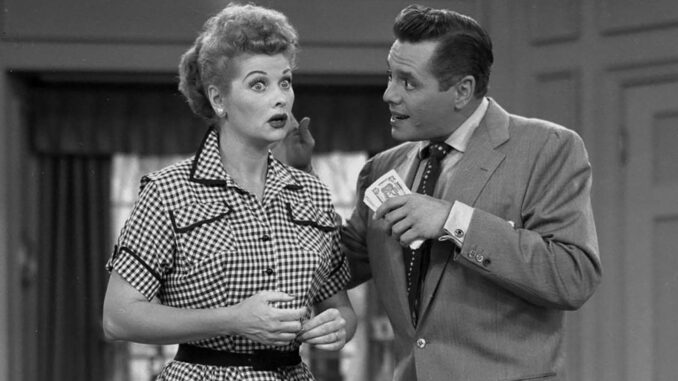
When Amy Poehler was first approached by Ron Howard to direct a documentary about Lucille Ball and Desi Arnaz, she was interested but cautious. Though “I Love Lucy” was only on the air for five seasons, what would be a blip in today’s TV landscape, the era-defining show and its stars and creators have been covered to the moon and back. Just this past year, Aaron Sorkin tackled the pair in his drama “Being the Ricardos,” starring Nicole Kidman and Javier Bardem as the first couple of comedy. While both films show a different side to these larger than life figures, “Lucy and Desi” takes a decidedly more entertaining tack, while grounding itself in their humanity by focusing on their loving relationship.
“I thought to myself, ‘What is the way in here? How could I get in [in a way] that wouldn’t feel like a nice tribute, which is what Lucy and Desi have had a lot of, just kind of nice clip packages and tributes of their success,” Poehler told IndieWire as part of the IndieWire Studio presented by Adobe at the 2022 Sundance Film Festival. “They are so famous and funny and successful, but over the years they’ve kind of become very 2D. They almost became Halloween costumes of people. We use a lot of patriarchal language around innovators, like ‘groundbreakers’ and ‘tastemakers’ and ‘geniuses,’ and I think sometimes we lose the humanness of people. The complicated human parts.”
As Poehler dug into the research and learned more about Lucy and Desi as people, the strength of their relationship stood out as something unique that kept them grounded throughout the pressures of success.
“The way they spanned a lifetime and were many things to each other is very inspiring. So we used that relationship as a structure in which to tell their story,” she said.
While much has been written about Lucille Ball, less attention has been paid to Arnaz and his contributions to the show, which were numerous as both an actor and a producer. One of the things “Lucy and Desi” does best is highlight Arnaz’s personal history as a refugee from Cuba all the way up to his position as a titan of television production.
“He was a huge innovator and experimented in the form in ways that few people did,” said Poehler. “Because he was an outsider and a disruptor, he asked questions that people weren’t asking and therefore changed the way we make TV. And the way me make TV is very similar to how Desi first shaped it. …His story is often, at best, minimized and, at worst, like he was lucky to be on the show. And he made the show! He created the show!”
